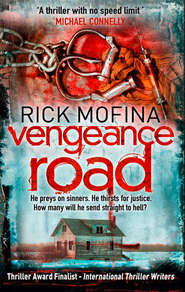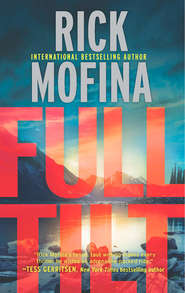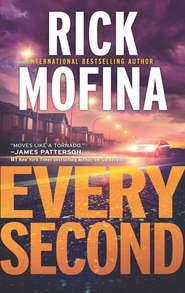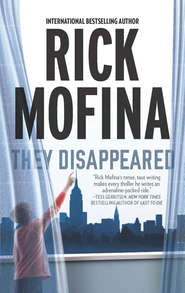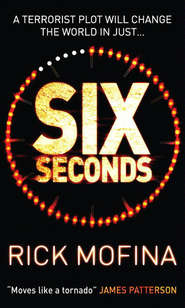По всем вопросам обращайтесь на: info@litportal.ru
(©) 2003-2024.
✖
Into the Dark
Автор
Год написания книги
2019
Настройки чтения
Размер шрифта
Высота строк
Поля
To get even closer.
And there it is.
He parked across the street, glanced at the for-sale sign. The ranch-style house was sky-blue stucco with wood trim. It had a curved driveway, sweeping front lawn and tidy landscaping. The clank of tools floated from the side yard.
Bowen got out and walked along the lush lawn toward the sound of hammering. A man, crouched near a garden bed, had just driven a nail into a piece of loosened trim. When Bowen’s shadow fell over him, he looked up, hammer in hand.
“Can I help you?” the man asked.
“Hi, I saw the sign. Is the house still for sale?”
“It is.”
“Are you the owner?”
“I am.”
“I’m interested in it. Would it be possible to have a quick tour? My wife and I are looking for a house in Santa Clarita.”
The man stood. He was in his late fifties and wore jeans and a flannel shirt over a faded T-shirt. His brush cut gave him the air of a retired soldier. His black eyes gleamed as they assessed Bowen.
“The agent handles that, everything’s supposed to go through her.”
“Well, I was in the neighborhood looking at another property,” Bowen said. “I’m not sure how long it will be before I’m back this way.”
The man twirled the hammer in his big, tanned hand as he thought.
“All right, seeing that you’re here, I suppose I could show you around.”
They entered the house through the front door. The living room was spacious with hardwood floors and a brick fireplace.
“You can burn gas or wood.” The man passed Bowen a listing sheet from the coffee table, after he’d set his hammer down. “I’m asking four-seventy-five. Taxes are just under five a year. It’s a three-bedroom. It’s all there on the page. Don’t worry about your shoes. We’ll go this way.”
“I’m sorry. I didn’t catch your name?” Bowen asked.
“Meadows, Louis Meadows.”
“And what’s your line of work, if you don’t mind me asking?”
“I retired from the navy. I was a cook on the Abraham Lincoln.”
Although the place was pleasant, there was an underlying sadness and a trace of Old Spice. The house had an eat-in kitchen, ample tiled counter space, a dishwasher, a double sink with a sprayer and garbage disposal.
“The kitchen’s new.”
Bowen nodded approvingly, glanced around with an ear cocked for anyone else in the house.
“My wife had it redone last year just before she passed away.”
“I’m sorry to hear that. My condolences.”
“It was cancer. She never got to enjoy the renovation.”
The dining room had a dark wood table and matching china hutch. Bowen wondered about the last time it was used. The bathroom was tidy. The master bedroom was neat. On the night table he saw a copy of From Here to Eternity and an old edition of Jane’s Fighting Ships. He also saw framed photos of two women. One of them was in her fifties. The other resembled her and was in her early twenties.
They moved to a second smaller bedroom with a desk and two-drawer steel file cabinet. A U.S. flag and map, with colored pushpins piercing various countries, covered a wall.
“This could be a guest room. I use it as a study,” Meadows said.
They moved down the hall to a room with a closed door.
“That’s the third bedroom. It’s bigger than the second one.”
Keeping his hands in his pockets, Meadows stared at the door in mild trepidation.
“Is this your daughter’s room?”
Meadows shot him a look, as if Bowen had read his mind.
“Sorry,” Bowen said. “I saw the photograph in the other room and I’d just assumed.”
“Yes.” Meadows made no move to show the room.
“Guess we don’t want to disturb her,” Bowen said. “I understand.”
But Bowen knew.
He damned well knew as he concentrated on the pain in Meadows’s face the way a patron absorbs the aftermath of it in a work of art, like Michelangelo’s Pietà. Bowen drank in Meadows’s pain, as he’d done with the fear of the woman he’d pulled from the car accident.
“No,” Meadows said. “My daughter’s not there.”
“Is she away at college?”
Twisting the knife in the wound.
“No.”
“May I see the room?”
Meadows hesitated as if waiting for the will to open the door.
“Yes.”
The room was cooler and smelled musty. Sunlight had caught the fine dust particles that were sent churning into the air when the door opened. On the wall, he saw a poster of Meryl Streep and a framed watercolor of flowers. He noticed the bulletin board with a calendar. Notes with hours under the word work were penned in for some dates.
The walls were an opaque bluish-green. The single bed was made with a white comforter. A stuffed bear was the lone occupant. There was a white desk with a laptop, a jar full of paper money and change, labeled Tips. The closet was open and empty save for a tower of cardboard boxes, sagging from age and marked in felt-tip pen with Leeza’s Things.
The room was a tomb to the life that had resided here.







